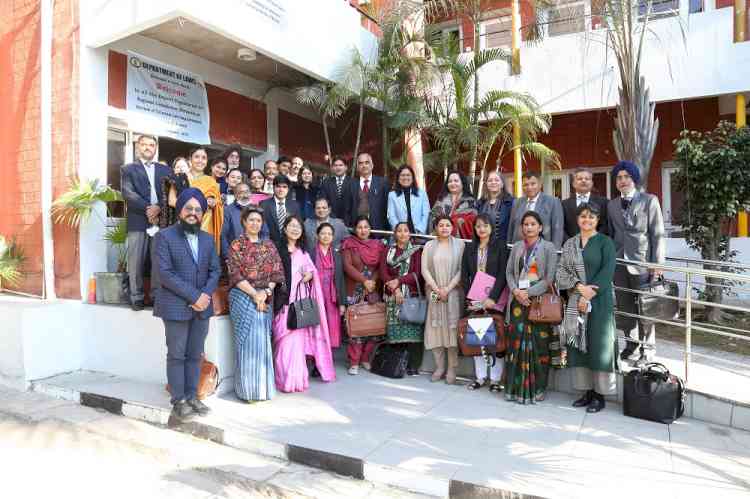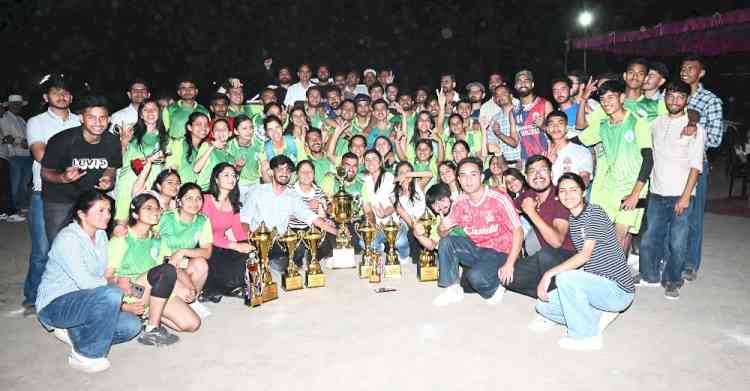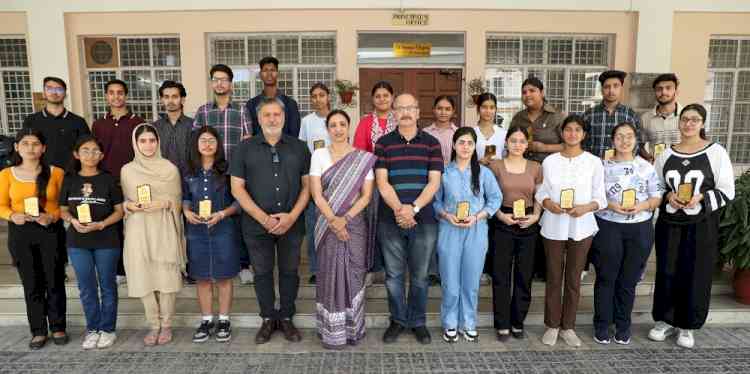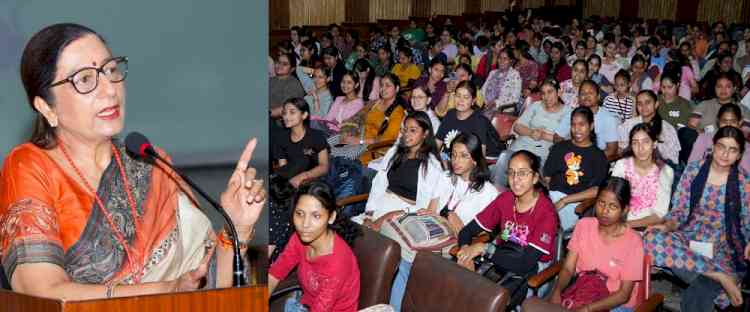Regional Consultation on Review of Criminal law- Improvement in Status of Women
The National Commission for Women in collaboration with the Department of Laws, Panjab University has organized the event

Chandigarh, February 12, 2022: The National Commission for Women in collaboration with the Department of Laws, Panjab University has organised a “Regional Consultation on Review of Criminal law- Improvement in Status of Women' on Saturday, under the flagship of the Ministry of Home Affairs through the Ministry of Women and Child Development to sought recommendations on possible amendments to Criminal Law namely the Indian Penal Code, 1860, the Code of Criminal Procedure 1973, and the Indian Evidence Act, 1872. It has been a sequel in the series of consultations to be organised by the National Commission for Women. The Hon’ble Vice-Chancellor, Prof. Raj Kumar of Panjab University warmly welcomed the Member Secretary Smt. Meeta Rajivlochan, Senior Coordinator Ms. M. Lilabati of National Commission for Women and expressed gratitude to the Chairperson, Prof. (Dr.) Devinder Singh. Prof. Shipra Gupta of the Department of Laws for arranging and conducting such wide-reaching consultation.
The Vice-Chancellor conveyed that the Panjab Unversity feels fortunate to receive such an opportunity from the NCW and privileged to be a part of greater change. While stressing how important a woman is for a household, any organisation, and society at large he also mentioned that at Panjab University every effort has been made to secure their equal representation and a very good number of posts at administrative and governing bodies are being held by them. In his concluding remarks, he wished every attendee that this deliberation reap desired objectives. Ms. Meeta Rajiv Lochan, an IAS officer and Member Secretary of NCW then introduced everyone to the objective of consultation i.e to analyse, revisit the law to better facilitate the needs and aspirations of the public and to suggest potential and practicable solutions to cure the deficiencies that threaten to derail the effective operation of our criminal justice system. Prof. Shipra Gupta then gave a brief introduction of the battery of experts comprising of Retd. High Court Judges, Retd. Session Judges, Advocates, Judicial Officers, representatives from NGOs, social activists, Police officers, and chairpersons of the women commission from as far as Ladakh, Jammu & Kashmir, Himachal Pradesh, Punjab, Haryana, Chandigarh, Uttrakhand, and Uttar Pradesh.
The deliberations and consultation were carved out in two sessions i.e Technical session I and Techincal Session II. In Technical Session I, Prof. (Dr.) G.S Bajpai, Vice-Chancellor, RGNUL, Patiala moderated the session and initiated the discussion on questions such as Should sexual offences be classified as a subset of gender-discrimination offences, what should be the standard of consent under Sec. 375 of IPC, 1860 and should marital rape as exception 2 under Sec. 375 should be deleted etc. In respect of many questions, the complete house agreed that provisions of criminal law should be gender neutralised and that provisions should be made in a way that it has greater reach even to women living in remote areas, tribal communities, and uneducated women. The Technical Session II was moderated by Prof. G.I S. Sandhu, Registrar & Prof. of Law, RGNUL in which Offences relating to marriage, legalities involved in Procedural Law related to arrest, search and seizure, maintenance provisions under Section 125 of Criminal Procedure Code was discussed at great length.
The technical sessions were followed by an Open House Discussion in which legal luminaries have suggested thoughtful, far-reaching, and splendid reforms. In the end, the vote of thanks was proposed by Prof. (Dr.) Devinder Singh. He expressed sincere gratitude to the National Commission of Women for presenting such an opportunity to the Department of Laws and appreciated the efforts of faculty members, research scholars, technicians, and non-technicians of the Department in the successful completion of the event.


 cityairnews
cityairnews 










